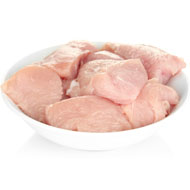
Discovery will bring awareness of how to reduce salmonella in animals
A new serotype of the salmonella bacteria has been discovered by a research assistant professor from Texas Tech University.
Marie Bugarel, from the department of Animal and Food Science, made the discovery whilst researching how to reduce salmonella in food and improve public health. She was focussing on providing solutions to control salmonella in cattle populations, which led to a better understanding of the biological make up of salmonella itself, including its genetic makeup. It was through this approach that Bugarel discovered the new strain.
The new serotype was confirmed by the Pasteur Institute in Paris, the international reference centre for salmonella. It is traditional for a new serotype to be named after the city in which it is discovered, therefore this one will be called Salmonella Lubbock.
Guy Loneragan, Bugarel's mentor at Texas Tech, said: “More important than the name is that this discovery illustrates there is more that needs to be discovered about salmonella and how it interacts with cattle populations.
“With this understanding will come awareness of how to intervene to break the ecological cycle and reduce salmonella in animals and in beef, pork and chicken products.”
Loneragan believes that, with this discovery, between 20 and 30 per cent of two current strains, Salmonella Motevido and Salmonella Mbandaka, will be reclassified as Salmonella Lubbock.
According to the university, some of the strains of Salmonella Lubbock fall into the category of serotype patterns that are, as a whole, more resistant to many families of antibiotics, and therefore require further research. At present, human susceptibility to the Lubbock strains remains unknown.



 The Animal and Plant Health Agency (APHA) has updated its online reporting service for dead wild birds.
The Animal and Plant Health Agency (APHA) has updated its online reporting service for dead wild birds.